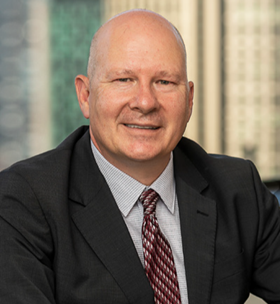By David Atkin, CEO, Principles for Responsible Investment

Turning political tides
In what was dubbed ‘the election year’, 2024 saw over 70 countries – home to almost half the global population – take to the polls. What resulted was a clear signal from voters that change was at the top of their wish list.
As those who feel the effects of compounding crises most acutely, populations used their right to vote to trigger a break-away from the status quo. And who can blame them?
As I write this, we have wildfires devastating entire cities, as news breaks that for the first time, global warming has exceeded 1.5C across an entire year. The world’s largest reinsurance group, Munich Re, recently reported that catastrophes such as hurricanes and fires cost the world $320bn in 2024.
With responsible investment activities taking a long-term lens, our work has to be set up to succeed in all political circumstances.
Economic inequality remains staggering, with estimates that it will take over 250 years to close the global gender pay gap at the current rate of progress. And if all of this wasn’t enough, 2024 was another year of human suffering on a mass scale, with one in eight people worldwide being exposed to conflict.
Populations are feeling hopeless in the face of these global crises, which are only growing in frequency and intensity. As a result, political tides turned in many different directions across the globe last year. And in countries where incumbents still managed to hold on to power, they did so by thinner margins.
This means we’re faced with a politically fragmented world, which is only going to become more volatile as we progress into 2025 and beyond.
The case for RI stands unchanged, but we must adapt
Whilst the crises I’ve just described are a sobering reality to face, they make one thing pretty clear: the work we’re doing as responsible investment (RI) practitioners is still very much needed. If anything, the context I’ve just described makes our work more important than ever.
But we must adapt in the face of this changing external landscape.
We will go through many political cycles in the next few decades, which will each bring their own set of opportunities and challenges. But possibly the most important take-away for our sector is this: with RI activities taking a long-term lens, our work has to be set up to succeed in all political circumstances.
Re-engaging the sector on RI
As we face this new reality as an RI community, I see this moment in time as an opportunity for a candid stock-take. That means acknowledging how far we’ve come since the inception of RI, turning a once niche concept into something worthy of paying attention to. But it also means reflecting honestly about the level to which we’ve truly integrated the work of the RI community into mainstream investment processes.
If we’re going to move RI beyond its current identity as mostly a specialist function, there is work to be done within our own sector before we can even think about facing the outside world.
A big part of that will be re-making the investment case for RI among our own. This will involve the all-important task of strengthening our evidence base, to reinforce why it matters from an investment point of view that ESG is well and truly integrated into investment practices. It’s as much about filling any knowledge gaps as it is about countering misconceptions.
Conditions for responsible investors are tough right now, and only likely to get more challenging. But in a world where political fragmentation is creating division and driving isolation, we have to be the force that counters that.
I believe this is a truly critical component to ensuring the future success of RI as a practice, and as an organisation we want to support our signatories and the wider RI community to better tell our value creation story. Because after all, if our own sector isn’t bought into it, why should others be?
Our commitment to the PRI mission of building a sustainable financial system remains steadfast. But we can only succeed if that commitment is reciprocated by our community.
There’s no doubt about it – conditions for responsible investors are tough right now, and only likely to get more challenging. But in a world where political fragmentation is creating division and driving isolation, we have to be the force that counters that.
And no, that doesn’t mean adopting a one-size-fits-all approach. There are many different ways to do RI. But the one constant is that if you think these issues are material, you can’t suddenly disregard that belief. If you’ve seen the science and evidence but choose to ignore it, you’re exposing yourself to fiduciary risk.
So if you believe in the benefits of addressing financially material ESG issues through multilateral forums like the PRI, we urge you to continue on this journey with us. History will show that those that stayed the course did the right thing for their businesses, their clients and beneficiaries, and wider society.
This blog is the first in a two-part series. A follow-up piece will be published in the coming weeks.












